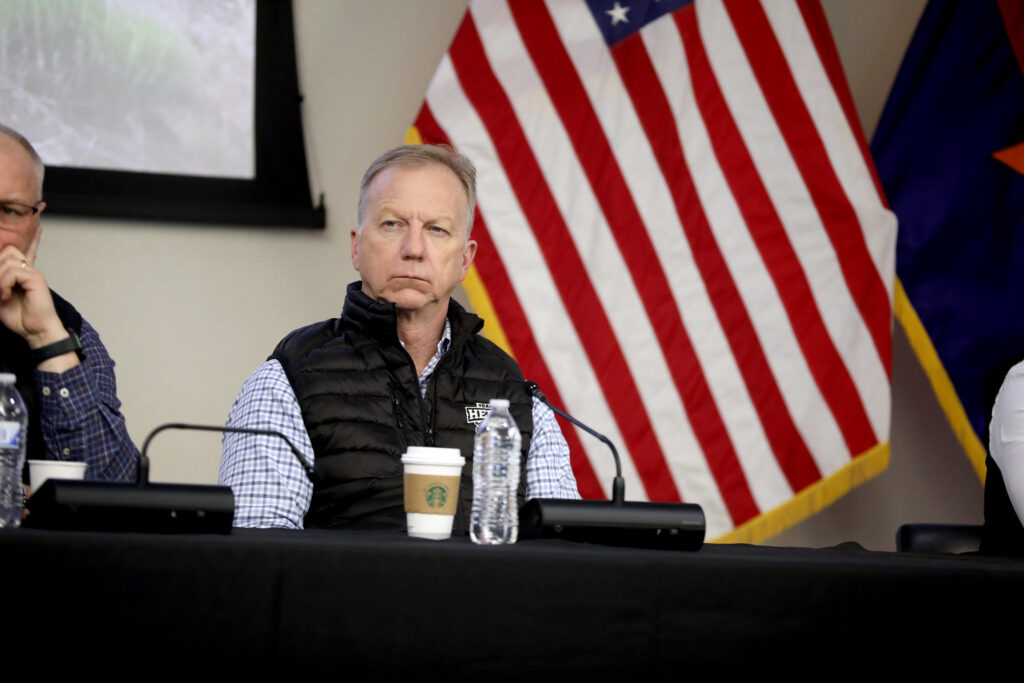As the United States transitions to a new presidential administration under Joe Biden, ICAS released the Biden International Affairs Personnel Tracker. “Climate, Health and Technology” is one of four categories that ICAS has classified within this project. The Tracker identifies the official positions and interactions of key players in the Biden Administration who will directly or indirectly impact the trajectory of the U.S.-China relationship. It is not intended to restrict, oversimplify, or neglect any personnel or role but to logically organize many international affairs positions in a categorized manner. Additions and updates are made on a rolling basis as time and circumstances allow.
Personnel in this category serve at the Departments of Energy, the Department of Health and Human Services, and other key environmental, public health, and science and technology-linked policy making or regulatory bodies. The primary role of the included personnel is to chart out, nurture and regulate scientific endeavors in climate change, public health and technological advancement, and represent the United States at multilateral forums. Personnel within this classification are also unified by a drive to resolve existential problems facing humankind rather than only prioritizing national goals, which encourages cooperation and cross-border interactions.
Climate
In line with President Biden’s campaign promises, such as rejoining the Paris Agreement, the Administration has placed much consideration on bringing on climate and environmental specialists to high-level positions. For instance, former Governor Jennifer Granholm (Secretary of Energy) has a dedicated history of prioritizing the development of a cleaner and greener auto industry. Her focused background made some observers question whether she was the best fit to lead the Department that has 70% of its budget dedicated to nuclear sciences. However, her nomination was approved by the Senate 13-4 on February 4. Like Michael Regan (Environmental Protection Agency Administrator), Granholm’s primary public view of China appears to be that of a manufacturing competitor in energy technology development, though official commentary on the subject has been minimal.
Gina McCarthy’s nomination (National Climate Advisor) was celebrated for her technical expertise, foreign experience, and career-long dedication to environmental issues. Of these three personnel, she appears to be the most opinionated on and experienced with regard to China. She views China as both an economic competitor and, more importantly, a vital collaborator on resolving climate issues since the U.S. and China share the bulk of responsibility for global carbon emissions. “It’s about science, technology, and our governments working in harmony to achieve those objectives,” said McCarthy in 2013 during a speech in Beijing as EPA Administrator. However, as of February 2021, her views appear to also align with Regan and Granholm: “We are right now ceding a lot of the biggest opportunities [in energy resilience technologies] to China and other countries.” So far, along with her international counterpart John Kerry, McCarthy has been a more vocal member of President Biden’s climate personnel team and can be expected to be a key interlocutor in top-level interactions with international counterparts.
Health
The Biden Administration has also nominated and appointed both private and public sector personnel in this sub-category of Health. Rochelle Walensky (Director of the Centers for Disease Control and Prevention), Francis Collins (Director of the National Institute of Health), David Kessler (Chief Science Officer for COVID-19 Response), and Vivek Murthy (U.S. Surgeon General) do not have evident publicly known opinions on China or U.S.-China relations at this time. However, each has had varying degrees of experience in joint research or interactions with counterparts abroad and has affirmed the importance of working with international bodies like the World Health Organization. Their emphasis on international collaboration for the betterment of domestic and global public health is evident and inevitably shapes their perceptions of international affairs.
Xavier Becerra (Secretary of Health and Human Services) has limited experience with China but appears to share the broadly held balanced view that China has the right to be treated fairly but is expected to compete fairly as well. For instance, he voted “Aye” on H.R. 4444 (106th Congress) to pass the China Trade bill of 2000, which normalized trade relations with China and established a framework for stable and predictable bilateral commercial ties. More recently, in a March 2020 tweet, Becerra rejected Trump’s xenophobic rhetoric towards China in connection with the coronavirus. Public and senatorial perceptions of Becerra’s nomination are mixed, as some attribute his leadership of California during the pandemic as the reason for his delayed Senate confirmation hearing. Unlike other top health personnel like Dr. Walensky and Dr. Collins, conversations surrounding Becerra indicates his nomination is more divisive rather than unifying.
Lastly, as “America’s Doctor” who led the White House Coronavirus Task Force in 2020, Anthony Fauci (Chief Medical Advisor on COVID-19 to the President) regularly speaks publicly on COVID-19 updates, and sometimes, as a consequence of the virus’ geographic origins, at public health events in China and on matters of foreign policy. Presently, Dr. Fauci appears to hold China at fault for the severity of the COVID-19 pandemic. In a January 2021 interview, he reportedly “sees a greater China role in COVID-19 spread” due to a lack of information sharing and early-access to the source of the virus. Like his colleagues, Dr. Fauci remains open and hopeful in working with international counterparts, evidenced by an upcoming virtual seminar on March 2, 2021, where he will speak alongside China’s top infectious disease expert, Zhong Nanshan.
Technology
The Biden Administration is still in the process of releasing its nominations for major science and technology positions. Eric Lander (Presidential Science Advisor and Director of the Office of Science and Technology) is the highest-ranked official appointed in this area so far. Like his colleagues working in climate and public health, Dr. Lander’s past experiences working on joint research projects with international scholars, including ones from China, implies that he values international collaboration. He has yet to make any notable public commentary on China as a science and technology peer and competitor.
One anticipated announcement is regarding the position of Administrator for the National Aeronautics and Space Administration (NASA), which has been led by an Acting Administrator since January 20, 2021. With China and the United States both reprioritizing space program development in the last couple of years, the appointment of an enlightened nominee in the space leadership role could prove vital to how the U.S. and China interact in the expanding and opportunity-rich space domain.
Often overlooked, the drive to solve ‘umbrella’ problems that impact all of humankind can be a unifying factor across nations, including ones in deep-seated, complex competition. This factor sets subjects like climate, health and technology apart from the more competition-laced Tracker categories—like Trade & Finance or Defense & Security—and ever-evolving topics—like Diplomacy & Foreign Policy.
Ultimately, time will tell how the Biden Administration nominees in the Tracker classification category related to Climate, Health and Technology adjust to their new roles and how vocal they become on U.S.-China relations, if at all.




